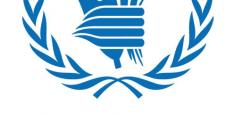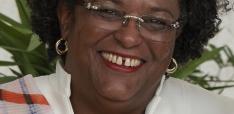Enlargement and Estrangement in Brussels
Cornelius Adebahr unpicks the politics behind recent office relocations in Brussels.
Miles’ Law of Administration, ‘Where you stand depends on where you sit’, seems to take a new twist when it comes to the EU’s Enlargement policy. Given the physical relocation of the European Commission’s Directorate-General (DG) for Enlargement from a central location to a spot at the fringes of the city’s EU quarter, one might extend the phrase to ‘Where you sit depends on what your policy is worth’. After all, what could be a mundane move of office furniture rather is a symbol of the state of affairs of enlargement policy in general.
Europhiles will recognize the Rondpoint Schuman as the ‘heart’ of the EU’s executive decision-making by the Council and the Commission (the European Parliament is just a stone’s throw away around Place Luxembourg). There, the Council, the member states’ powerful institution, has its Secretariat opposite the Commission’s flagship building, the ‘Berlaymont’. Next to the latter, another prestigious building, the ‘Charlemagne’, houses a number of the Commission departments, or DGs. (Somewhat ironically, the Council Secretariat used to be located there until the mid-1990s because the Commission would not share the ‘Berlaymont’ with its rival institution.)
This is the central area from which the officials working on the bloc’s relations with the countries from the Western Balkans and Turkey recently got expelled. Instead of residing in the ‘Charlemagne’, they now have to navigate the corridors of an inconspicuous modern building at a major intersection closer to the city. And which other DG took their place instead? Well, isn’t there an economic and financial (and socio-politico-institutional) crisis going on in Europe these days? The answer is yes, and colleagues from the DG for Economic and Financial Affairs (ECFIN) apparently needed more space in a convenient location.
To add insult to injury, one might say, the Council itself is about to expand heavily thanks to three consecutive rounds of enlargement over the past ten years. Just across from where DG Enlargement used to be, it has constructed shiny new buildings with pompous names like ‘Europa’ and ‘Lex’, all needed due to the near-doubling of the EU’s membership. Moreover, the new External Action Service has its own brand new seat on top of the Rondpoint. Combining the external relations parts of the Council and the Commission (those of the latter used to work from, well, ‘Charlemagne’), the EU’s diplomats now call the ‘Triangle’ their home.
Of course, politics is no Monopoly game about fancy streets and big hotels. Yet, symbolism has always had its role in the EU’s enlargement policy, from the talk of ‘regatta vs. big bang’ in the run-up to Eastern Enlargement to the branding of the 2004 accession as ‘reunification of Europe’ to an elevation of Croatia’s most recent entry into the club as a sign that the door remains open to the other countries of the Western Balkans. This is why it does bear some meaning when DG Enlargement is physically relocated to a much less prominent position.
Add to this the persisting rumors about the make-up of the next College of Commissioners following the election to the European Parliament in May 2014, and symbolism may look like a policy change. The first-ever Enlargement Commissioner was Günter Verheugen from Germany. He held this post from 1999 just until the Big Bang of 2004 when ten countries joined the club. While Verheugen went on to become a Vice-President and Commissioner for Enterprise and Industry, his Finnish colleague Olli Rehn took over the Enlargement portfolio. Having overseeing the accession of Romania and Bulgaria in 2007, Rehn is now even better known throughout Europe as the Commissioner for Economic and Monetary Affairs and the Euro (the crisis, again!). His colleague from the Czech Republic, Štefan Füle, took over the enlargement portfolio together with the EU Neighbourhood Policy targeting the countries in Eastern Europe, the South Caucasus and the Southern Mediterranean that do not have a membership perspective. Füle had only one success to report since he assumed office in 2009, i.e. Croatia’s accession this summer.
The future looks even bleaker. At its upcoming pre-Christmas summit, the European Council will OK to start negotiations with Serbia. Given that Iceland recently halted the enlargement talks, the EU will then be negotiating with only three countries: Turkey, Montenegro, and Serbia. None of these candidates will be ready to join the EU before the end of the upcoming Commission term in 2019. This will undoubtedly make the Enlargement portfolio much less attractive. Rumour has it that it might even be combined with another DG, only to make it appealing for a member state (and the person that comes with it) to be in charge of it. If this were the case, the Enlargement officials might have to move again – finding a new place commensurate with the value that the EU places on this policy area.


